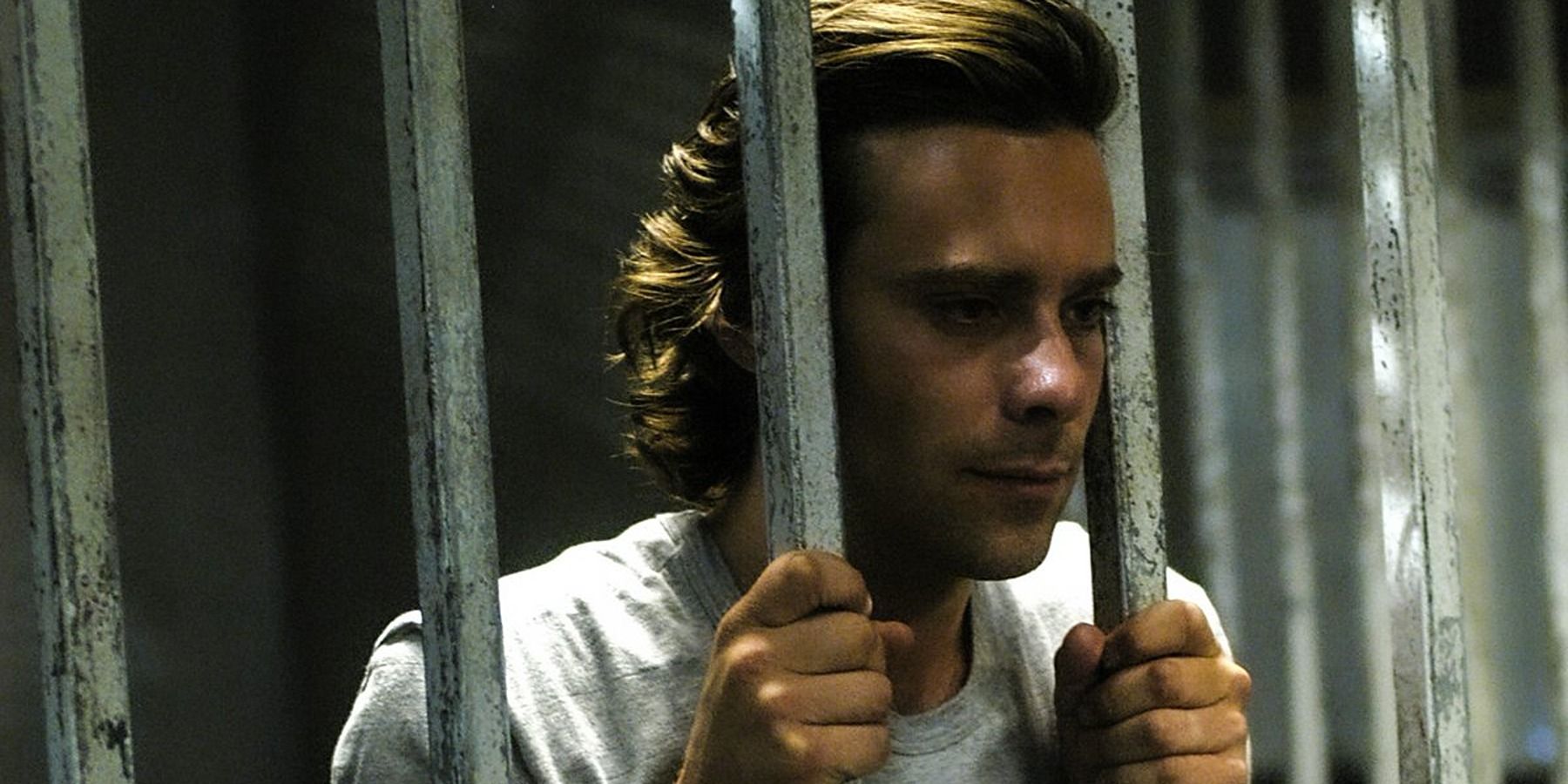
The Divine Enigma: Unraveling Gaius Baltar's Perception as God's Chosen Instrument in Battlestar Galactica

Discover the captivating journey of Gaius Baltar in Battlestar Galactica, as he grapples with doubt, desperation, and the blurred lines between perception and reality A poignant exploration of faith, identity, and the ultimate quest for purpose
In the intricate tapestry that is the reimagined Battlestar Galactica, one character's journey is a captivating exploration of faith, perception, and identity. Gaius Baltar, a brilliant scientist and complex individual, embarks on a path that leads him to believe he is a vessel of God. This transformation, characterized by psychological turmoil and external manipulation, provides a perspective to examine the blurred lines between reality and illusion.
James Callis brilliantly portrays Baltar, whose involvement in the destruction of the Twelve Colonies in Battlestar Galactica adds layers of complexity to his character. The humanoid robots known as Cylons, created by humanity, launch a devastating attack that wipes out the majority of the human population. Unbeknownst to Baltar at the time, his actions unintentionally aid the Cylons in their genocidal campaign. His internal struggles and moral conflicts serve as a vital foundation for his character's subsequent evolution.
The Seeds of Doubt and Desperation
Baltar's descent into his divine delusion originated from the aftermath of the Cylon attack on the Twelve Colonies. As the catastrophic events unfolded, Baltar was overwhelmed by guilt and fear. Unbeknownst to him, his own actions, fueled by desire and vulnerability, inadvertently aided the Cylons in carrying out their genocidal assault. This pivotal event serves as the catalyst for Baltar's internal turmoil.
Plagued by remorse and burdened by his conscience, Baltar's mind becomes a battleground of conflicting emotions. The trauma of witnessing the destruction of his world shakes his belief in the resilience of humanity and the conventional moral systems in place. As the surviving remnants of humanity seek refuge, Baltar grapples with his role in the tragedy and the looming question of cosmic justice.
In the midst of Baltar's internal turmoil, a significant presence emerges: Caprica Six, a Cylon agent who becomes both a constant companion and confidante to him, appearing both physically and as a projection in his thoughts. Known as "Head Six," she presents a mysterious narrative of divine intervention. With her captivating guidance, she preys on Baltar's vulnerability and longing for comfort, subtly depicting him as a chosen instrument of God's will.
Head Six fulfills the dual role of an enigmatic seductress and a catalyst for Baltar's evolving belief system. Her manipulative nature intertwines with his guilt and yearning for redemption, convincing him that he has a higher purpose within the grand scheme of events. As the relationship between Baltar and "Head Six" grows deeper, the boundaries between reality and illusion become increasingly blurred, setting the stage for his delusional conviction.
The Tug of Perception and Reality
Battlestar Galactica skillfully delves into the delicate nature of perception and the flexibility of reality. Baltar's encounters with "Head Six" frequently take place within his own consciousness, blurring the lines between external influences and his internal psyche. These interactions serve as a prime example of the series' exploration into the human mind's susceptibility to manipulation and its capability to construct alternate narratives as a way of defense.
As Baltar grapples with his newfound role as an instrument of God, the show delves into the thought-provoking concept of solipsism – the belief that only one's own mind is truly certain to exist. His belief becomes a survival mechanism, allowing him to rationalize the chaos surrounding him and find purpose in an apparently random universe.
Turning Points
Baltar's journey towards embracing his divine delusion is highlighted by several significant episodes. In "Six Degrees of Separation," his vulnerability is exposed when he becomes a victim of a con artist pretending to be "Head Six," further intertwining his identity with the divine narrative. "Downloaded" provides a glimpse into the Cylon perspective, revealing the complexity of their consciousness and shedding light on the driving forces behind both human and Cylon characters.
However, it is the crucial episode "The Hand of God" that solidifies Baltar's belief in his divine role. His strategic insight and unconventional methods lead to a crucial victory against the Cylons, confirming his sense of purpose. The intricate web of relationships and events reaches its peak in this triumphant moment, reinforcing Baltar's conviction that he is an instrument of divine intervention.
Baltar's transformation, from a guilt-ridden scientist to a man who sees himself as a tool of God, showcases the exceptional storytelling and character development in Battlestar Galactica. The series delves into themes of faith, perception, and identity, skillfully captured in Baltar's journey. His belief epitomizes the broader themes at play, including the blurred line between reality and illusion, the search for purpose in chaotic circumstances, and the manipulation of perception by external forces.
As audiences join Baltar on his path, they are compelled to confront their own perceptions of reality and personal belief systems. Battlestar Galactica prompts fans to question the true nature of truth and the fluidity of the human mind, serving as a poignant reminder that the divide between firm conviction and delusion can be deceptively thin. Ultimately, this scientist's journey extends beyond himself; it serves as a mirror for viewers to contemplate the complexities of their own beliefs and the profound influence of the mind in shaping our comprehension of the world.
















